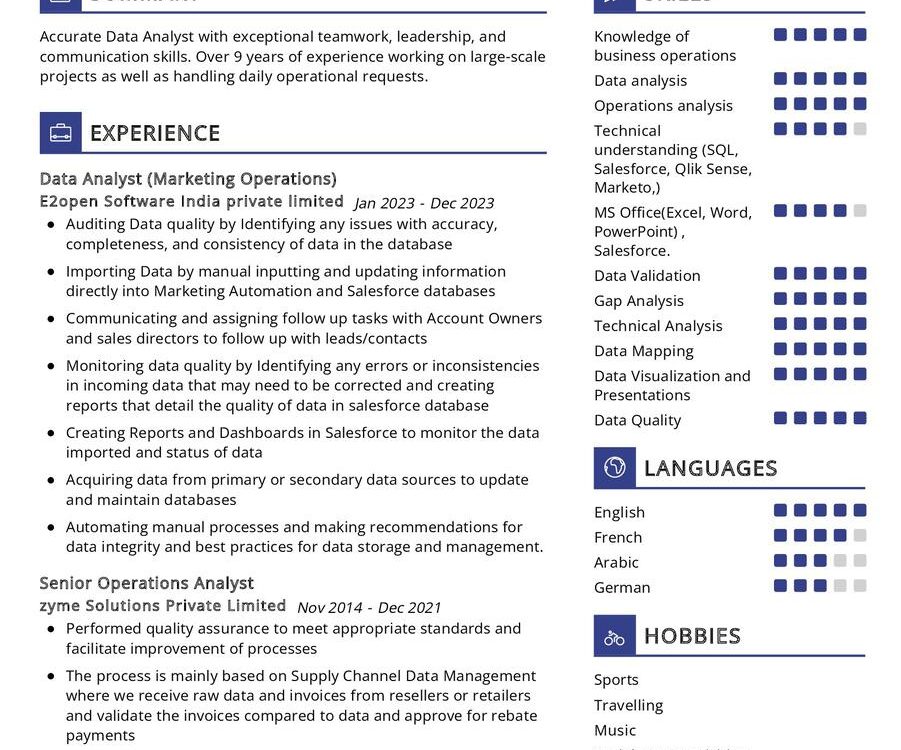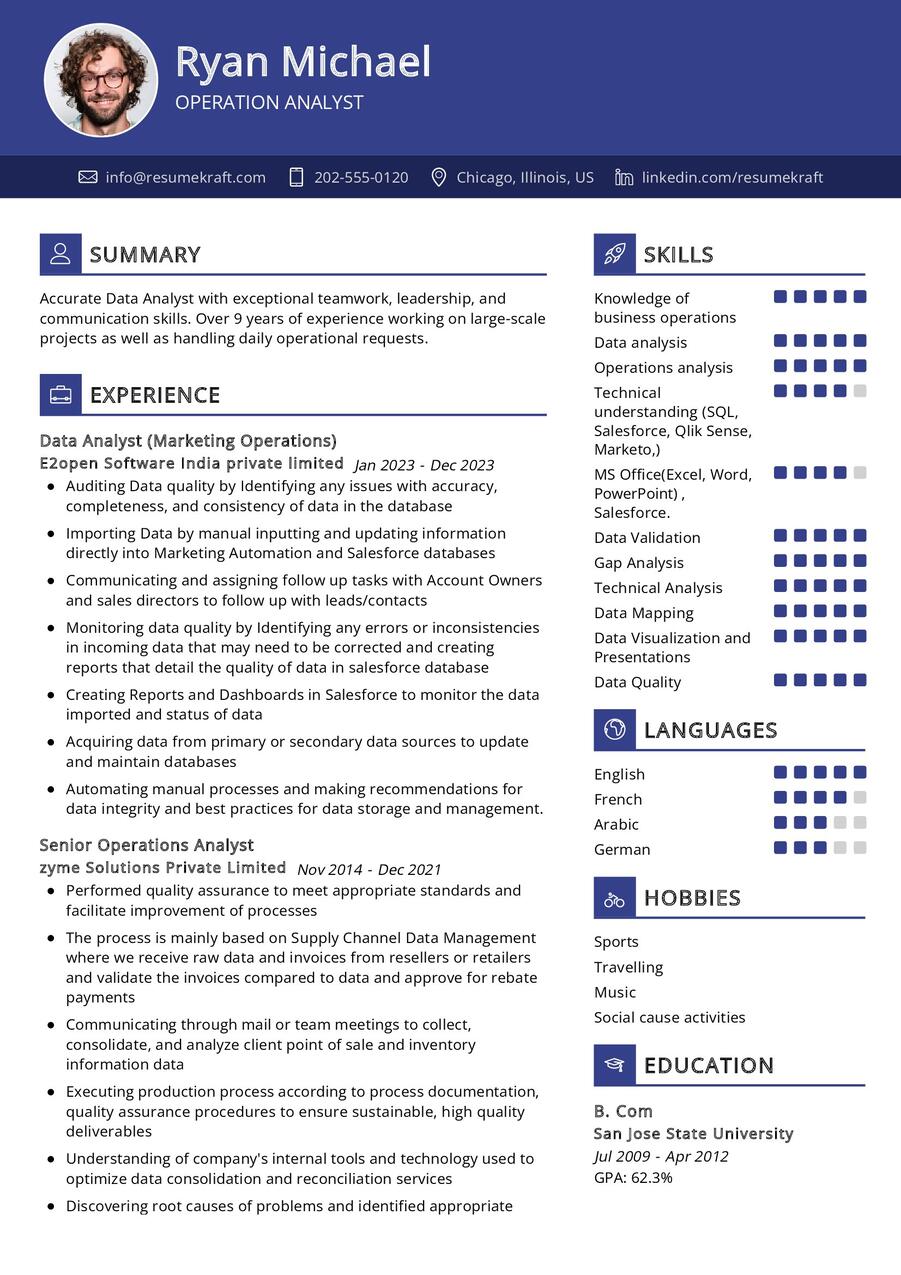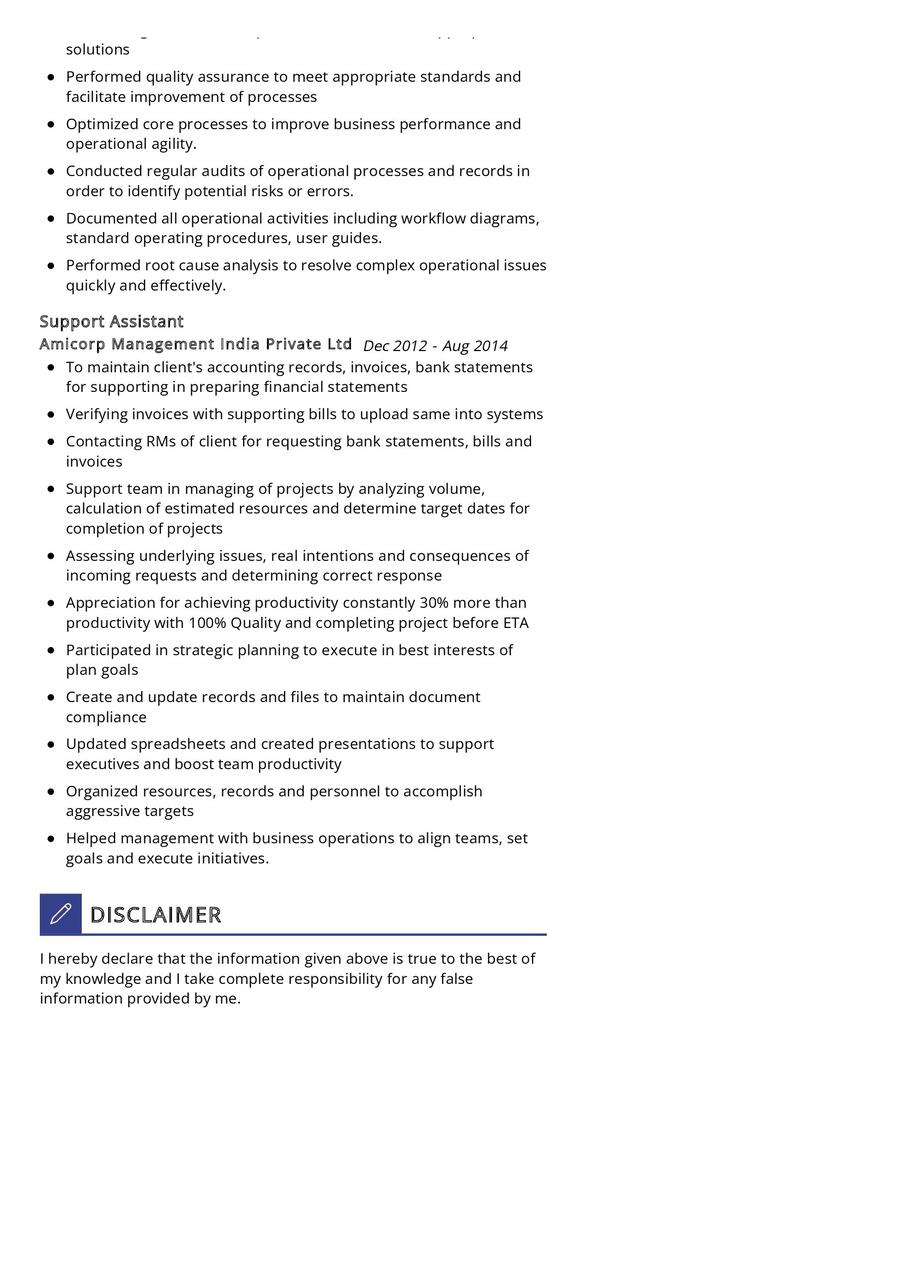Exploring the Role of an Operations Analyst
As the business landscape becomes more intricate, the role of an Operations Analyst is gaining prominence. This position is a dynamic blend of analytical prowess and operational expertise, steering organizations towards efficiency and success. In this comprehensive guide, we’ll delve into the multifaceted responsibilities, essential skills, and key requirements that define the role of an Operations Analyst.
Requirements for an Operations Analyst Position
Becoming an Operations Analyst requires meeting a set of stringent requirements, making the journey both challenging and rewarding. Let’s explore the prerequisites needed to embrace the role of an Operations Analyst:
- A Bachelor’s or Master’s degree in Business, Operations Management, or a related field, showcasing a strong foundation in the business domain.
- Profound analytical and problem-solving skills, honed through coursework and practical applications.
- Experience in data analysis, where you have demonstrated your ability to extract meaningful insights to drive operational improvements.
- Strong communication skills, essential for conveying complex analytical findings to various stakeholders.
- Proficiency in using analytical tools and software, such as Excel, SQL, or other relevant platforms.
- Adaptability and resilience, as the role often involves navigating through dynamic and fast-paced business environments.
Securing additional certifications in business analysis or relevant tools can enhance your profile in the competitive job market.
Responsibilities of an Operations Analyst
The role of an Operations Analyst is a tapestry of varied responsibilities, woven with threads of analytical thinking, strategic vision, and operational insight. Let’s unravel the core responsibilities that define this role:
- Analyzing operational processes to identify areas for improvement and efficiency enhancement.
- Collecting and interpreting data to provide actionable insights for decision-making.
- Collaborating with cross-functional teams to implement operational changes and optimizations.
- Creating and maintaining reports and dashboards to track key performance indicators (KPIs).
- Developing and implementing strategies to streamline workflows and enhance overall business operations.
- Conducting regular audits to ensure compliance with organizational policies and industry standards.
- Staying updated with industry trends and best practices to suggest innovative operational solutions.
Each responsibility comes with its own set of challenges and learning, shaping you into an Operations Analyst par excellence.
Crafting an Effective Operations Analyst CV
Your CV is the gateway to landing an Operations Analyst role, and crafting it effectively is crucial. Here are some tips to help you create a compelling CV that stands out in the competitive job market:
- Highlight your analytical skills, showcasing instances where you have successfully solved complex business problems.
- Detail projects where you contributed to operational improvements, quantifying the impact of your contributions.
- Include relevant certifications, such as Certified Business Analyst Professional (CBAP) or similar, to validate your expertise.
- Personalize your CV for each application, aligning your skills and experiences with the specific job requirements.
Your CV is more than a document; it’s a reflection of your capabilities and potential as an Operations Analyst.
Operations Analyst CV Summary Examples
Your CV summary is the opening act of your career story, setting the stage for what is to follow. It should be a powerful snapshot of your journey, encapsulating your experiences, skills, and the value you bring to the table. Here are some examples to inspire you:
- “Operations Analyst with over 5 years of experience, adept at leveraging data-driven insights to optimize business processes and drive operational efficiency.”
- “Results-oriented Operations Analyst with a proven track record in implementing strategic initiatives that enhance overall business performance.”
- “Detail-oriented and analytical Operations Analyst with expertise in KPI tracking and process optimization, contributing to organizational success.”
Your CV summary should provide a glimpse of your journey, strengths, and your vision as an Operations Analyst.
Building a Robust Experience Section for Your Operations Analyst CV
Your experience section is the heart of your CV, pulsating with the rich experiences you have gathered over the years. It is a space where you narrate your career story, highlighting the milestones and the learning. Here are some examples to guide you:
- “Led a cross-functional team in identifying and implementing process improvements, resulting in a 15% increase in operational efficiency.”
- “Collaborated with the IT department to develop automated reporting tools, streamlining data analysis processes and saving 20 hours per week.”
- “Conducted regular audits to ensure compliance with industry regulations, contributing to the company’s stellar record in audits and inspections.”
Each experience is a chapter in your career book, narrating tales of challenges met, solutions found, and successes achieved.
Education Section for Your Operations Analyst CV
Your educational journey is the foundation upon which your career stands. It is a testimony to your knowledge, your expertise, and your commitment to learning. Here’s how you can list your educational milestones:
- Master of Business Administration (MBA) in Operations Management, XYZ University, a journey of deep learning and specialization, 2016.
- Bachelor of Science in Business Analytics, ABC University, the foundation stone of your analytical skills, 2014.
- Certified Business Analyst Professional (CBAP), a recognition of your expertise in business analysis, 2017.
Each educational qualification is a stepping stone, leading you to the pinnacle of success in your career as an Operations Analyst.
Skills Essential for an Operations Analyst CV
Your skill set is your toolbox, equipped with a diverse range of tools that you have honed over the years. It is a showcase of your abilities, both innate and acquired. Let’s list down the essential skills that an Operations Analyst should possess:
Soft Skills:
- Analytical thinking and problem-solving, the ability to dissect complex issues and provide effective solutions.
- Effective communication, the art of conveying analytical findings to diverse stakeholders.
- Attention to detail, ensuring accuracy and precision in data analysis and reporting.
- Collaboration and teamwork, essential for working with cross-functional teams to implement operational changes.
- Adaptability and resilience, the capacity to navigate through dynamic business environments.
Hard Skills:
- Data analysis using tools like Excel, SQL, or business intelligence platforms.
- Knowledge of process improvement methodologies, such as Six Sigma or Lean.
- Proficiency in project management, ensuring successful implementation of operational changes.
- Report and dashboard creation to track KPIs and communicate insights effectively.
- Understanding of industry regulations and compliance standards relevant to the business.
Each skill is a tool, aiding you in providing exceptional operational insights and leading your team effectively.
Common Mistakes to Avoid When Writing an Operations Analyst CV
As you craft your CV, it is essential to steer clear of common pitfalls that can hinder your journey to landing your dream job. Here we list down the mistakes often seen in CVs and how to avoid them:
- Using a generic CV for all applications, a strategy that fails to highlight your unique fit for each role.
- Focusing solely on job duties, instead of showcasing your achievements and the impact of your contributions.
- Underestimating the importance of a cover letter, a missed opportunity to provide a personalized introduction to your application.
- Overloading your CV with technical jargon, potentially alienating non-technical hiring managers.
- Skipping the proofreading step, a mistake that can leave a negative impression on potential employers.
Avoiding these mistakes is crucial to crafting a CV that is both authentic and compelling.
Key Takeaways for Your Operations Analyst CV
As we reach the end of this comprehensive guide, let’s recap the key points to keep in mind while crafting your Operations Analyst CV:
- Emphasize your analytical skills, showcasing your ability to solve complex business problems.
- Highlight your contributions to operational improvements, quantifying the impact of your efforts.
- Include relevant certifications to validate your expertise and commitment to continuous learning.
- Personalize your CV for each application, aligning your skills and experiences with specific job requirements.
Finally, feel free to utilize resources like AI CV Builder, CV Design, CV Samples, CV Examples, CV Skills, CV Help, CV Synonyms, and Job Responsibilities to create a standout application and prepare for the Operations Analyst job interview.
Armed with these insights and tips, you are now ready to craft a CV that is a true reflection of your journey, your skills, and your aspirations. Remember, your CV is not just a document; it is a canvas where you paint your career story, a story of growth, learning, and operational excellence. Best of luck!



